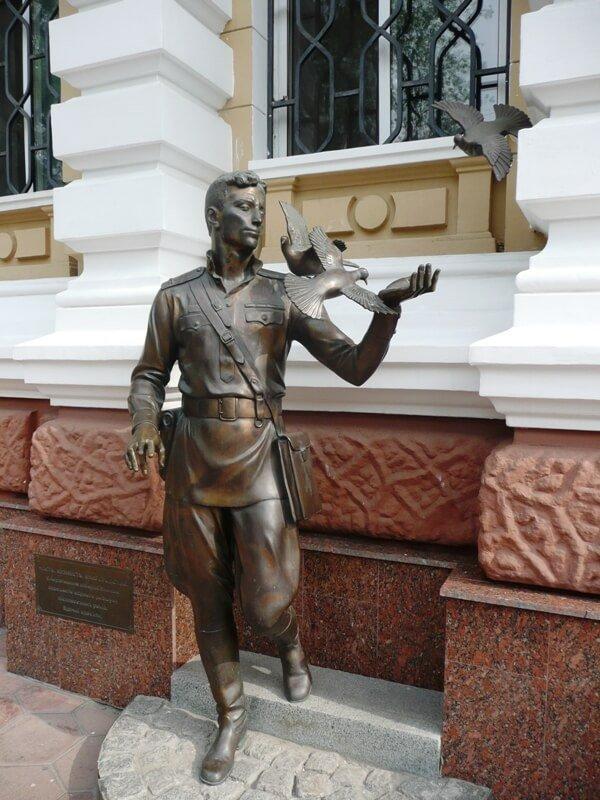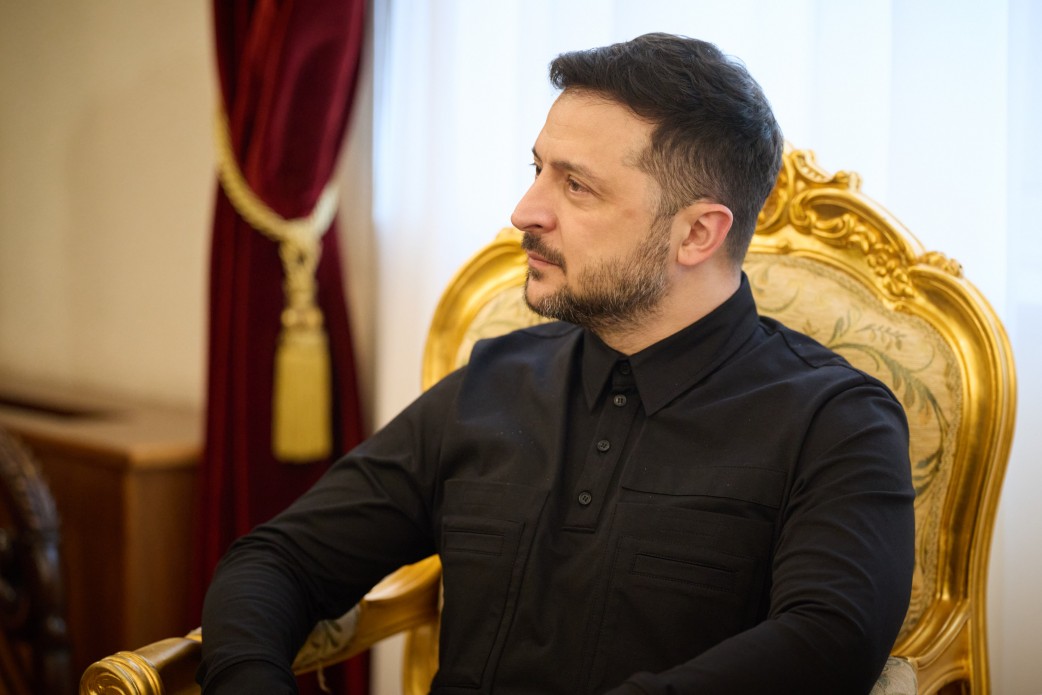At the entrance to the building of the Odessa Police Regional Headquarter, in Evreiskaya St. 12, there is the bronze Monument to a Policeman, kindly holding out his hand to pigeons. It was erected in 2008, further to the big success of the TV series "Liquidation", based on the legendary head of post-war Odessa Criminal Investigation Dept: David Kurland.

David Mikhailovich Kurland, born in Odessa in 1913, was the youngest of three children of a family living in Moldovanka district. His father, a stove-maker, died in the hungry years of the Civil War, when David was only seven years old. For a little period, he was brought up in an orphanage, until his elder Red Army soldier brother returned to Odessa.
Those were hard times of rampant crime, with numerous gangs and hardened robbers, who ruled in the city during the Civil War and the tragic times of the NEP. And the orphanage boys knew about the world of crime first-hand. Since then David decided that he would fight against this plague of bandits that was poisoning the lives of working and honest people.
After working some years as a stove-maker, shoemaker and in a factory worker, he finally joined the Odessa Criminal Investigation Department, under the recommendation of the Konsomol (Young Communists League). In few years, Kurland was promoted from assistant to senior detective.
He proved to be a competent and workaholic policeman. Kurland accurately planned operations, working closely with his agents, infiltrating the gangs; he himself participated in operations, followed the trails and caught the criminals. For his detective skills shown in the service, his colleagues called him a “professor for the fight against banditry,†and criminals named him “the Odessa Wolfhound.â€
In 1941, when the war broke out, David Kurland participated to the last defense of Odessa and was awarded a medal: the Order of the Red Star. Leaving the city with the Soviet troops on the last ship, he did not know that his mother and sister and children, remained in the City, would be shot by the invaders. After the evacuation, from 1941 to 1944, the experienced criminal detective continued fighting against Uzbek banditry. He was only 28 years, when he was appointed deputy chief of the Criminal Investigation Office in Uzbekistan. In his position, Kurland never failed his usual flair. But when Odessa was liberated, on the 10th of April, 1944, he returned to his native city, driving a tank, and immediately joined in the work to restore normal life.
There was a lot of work for criminal investigation in the post-war Odessa. The City was literally under a wave of crime. Destruction, poverty and hunger reigned everywhere. Many deserters, former policemen, who were outlaw, did not know how to come back to civilian life and had nothing to lose. The availability of weapons, stolen from Soviet or German soldiers, and the habit of violence, developed during the war years, created numerous gangs. Among many, a famous one of robbers was operating under the leadership of a former athlete nicknamed "Tarzan". In the region, collective farmers were terrorized by a gang driving around in American Dodge cars. And, there was the dangerous “Black Cat†band, a prototype of a famous one in Moscow. Criminals often killed soldiers and officers returning from the front to steal their weapons and ration cards. Whole families were slaughtered by intruders.
Kurland, now Deputy Chief of the Odessa Criminal investigation Dept (UGRO), led the operations, which achieved the gradual neutralization of gangs, thanks to a methodical planning of investigative measures, discipline and tireless work. With the help of many veteran soldiers and armed street patrols (there not enough agents), the police slowly caught saboteurs and bandits and life in Odessa became safer.

David Mikhailovich enjoyed an undisputed authority among his colleagues. Also criminals respected and feared him, at the same time. Always kind with people, he could kill with a word more efficiently than with his browning revolver; as it should be a real Odessite. And he was also a modest person, notwithstanding his power. He used to live with his wife Rita in a humble Komunalka (state communal apartment) with other neighbours, in Soborka district (criminals could have killed him easily).
In 2007, a very successful TV series made the Odessa's police authority erect the monument in Str. Oddly, the statue is unformally called by the citizens the “monument to Gotsmanâ€, from the main character of the film production, the detective David Gotsman. And, the facial features of this bronze policeman are copied from the face of the famous Russian actor Vladimir Mashkov.





















